By Sofika Prifti Cara
Part seven
To Forgive…!
– The Old Kavaja Clan – CARA
Memorie.al publishes several parts from the book ‘To Forgive’, authored by Mrs. Sofika Prifti (Cara), published by the Institute for the Study of Communist Crimes and Consequences in Tirana, in which the author has described with detail and professional competence the history of one of the most prominent clans, not only in the city of Kavaja but also beyond – the Cara clan – which produced not only distinguished patriots who contributed to the national cause and the freedom of Albania, but also renowned intellectuals, graduated in the West, who later returned to the homeland, contributing in several fields of science and life. Yet, even though the descendants of the Cara clan dedicated their lives to the national cause, after the communists came to power at the end of 1944, they would be persecuted, imprisoned, and interned, and the fierce class struggle would pursue them until 1990, when the collapse of the communist regime began.
Continued from the previous issue
SKROFOTINA
From Tirana, Bardhi was transferred to Skrofotina. The prison camp here was tucked behind an olive hill, which overlooked the sea, and from the main road we descended, it wasn’t visible at all. There, the prisoners worked like slaves, extracting salt. What should I tell you first about this camp?! No pen can write the horrors of the prison! Because the bitter cases and events were numerous during the 3-4 years that Bardhi stayed there. I will tell you just one instance: Going to the prison was easier because there were two buses, and sometimes a random car. Tickets were booked at the agency a day before for the Fier-Vlora line.
The worst part was the return, as the buses filled up in Vlora, and they wouldn’t take people outside of the designated stops, because the road police checks were strict. The occasional cars that passed were also full, but the worst was that even those few cars that might have a free spot wouldn’t stop; they were afraid, because the road control officers were stationed a little further away. Many times, it was our turn to walk all the way to the Mifol Bridge, to Levan, but very rarely did we walk all the way to Fier. Well, this instance happened, where we walked from Panaja in Vlora to Fier. On the day of the visit, once a month, we would take the few foods that we spared from the children’s mouths. At that time, food was on a list, rationed (!) Many times, our trip was unsuccessful because the policemen would tell us:
“You do not have a meeting with Bardhi today, as he is being punished for stubbornness,” and they wouldn’t even accept the food. I will tell you about one of those winter days, which was the day of the visit. We set off with my brother-in-law and the children, since we hadn’t taken them for two months straight, and Bardhi had asked for them. The weather was a bit cold, but without rain, only with some dark clouds. When we arrived at the camp, unfortunately, they did not allow us to meet, nor did they accept the food, despite our pleas. Bardhi was punished again! Around twelve o’clock at noon, we left the camp to return home.
The sky darkened, the clouds began to thicken; soon, thunder and lightning started, followed by a light rain. We were near the sea! In the position we were in, as if in an open field, there was nowhere to take shelter. It was very bad luck! We waved at some passing cars, but they didn’t take us. The rain was getting heavier, the lightning was blinding, the children were very scared, the thunder was deafening our eardrums, and the rain was accompanied by a cold wind.
As if that weren’t enough, hail joined in (this area is known for this bad weather). Not only the little ones we had with us, but even we adults were afraid. It was one of the worst winter days, perhaps, that we were experiencing. When we set off, it had been a good day; we never thought we would go through this hardship. Our son was 5 years old; the daughter was 9 months old, bundled up.
Both little ones started crying; the son was very healthy, my brother-in-law held him by the hand, pressed him close, and after a while, he stopped crying. My brother-in-law also carried the bags with the food they did not accept. Along with us were two other unfortunate people, a brother and sister, from Elbasan. They also had a brother in prison, whom they met, and they helped us a lot that day. There were four of them, two brothers and two unmarried sisters, due to the gangrene of the “class struggle,” the youngest were 47 years old.
People were afraid to marry these unfortunate souls. At that time, we kept walking and walking, not noticing where we placed our feet, splashing through the water-filled holes in the road. A rare car would pass quickly and splash water and mud onto our clothes. Slowly, slowly, we reached the Mifol Bridge, and the son started walking ahead, but when he reached the bridge, he stopped. The Vjosa River had swollen from the heavy rains, and the murky water had started to cover the bridge two or three palms deep.
It was late afternoon! The rainwater had entered our bodies, down to the bone; our clothes were so heavy that we could barely lift our legs. The cold of that winter day had entered our hearts as well; our chins were trembling, the words we wanted to speak to each other came out in fragments, frozen on our lips like ice. The children were pale from the cold, their skin and hair stood up like hedgehog quills. My frozen hands could barely hold the bundled daughter, who had become heavy from the rainwater.
Despite all these troubles, we had to hurry because the Vjosa had spilled over the bridge, and the water level was rising. The sun had set a long time ago; it was getting dark. If we didn’t cross, we had nowhere to stay! So we tasked ourselves with crossing the bridge and heading towards Levan, hoping to find a car to Fier. The son was small, short, and when he entered the bridge, the water reached his stomach! My brother-in-law quickly grabbed him, carried him in his arms, while the bags were taken by our friends from Elbasan.
Oh God! Only you gave me strength and courage, you kept my mind intact, because one part of my mind told me to jump into the Vjosa, with my two children, to disappear forever, but a mother’s heart is very compassionate towards her children. From that exhausted heart, a curse came out with all its warmth, against that ruthless, bloodthirsty regime. My life was nothing but torture, which provoked many bitter and ominous thoughts. Surprisingly, the bags containing the few foods we were going to take to my husband, whom the police did not accept, were saved!
We held them tightly and absolutely did not want to throw them into the water. Something unexpected, strange, happened in my life, which is not known to everyone, because life is not the same for everyone, because life is not a field of flowers for everyone? We had miraculously escaped from that hellish road! We reached home at dawn, on foot. We were like stretched wire, as the saying goes! We were half-dead from the exhausting journey, the bad weather, the rain, and the cold. Our feet were swollen, our shoes were ripped open, a heel from my shoe had fallen on the road, and I hadn’t noticed!
We had arrived home alive; that was the main thing! Thank God! We sat down and were unable to stand up, even to take off the clothes that weighed us down and were dripping with rainwater. Our friends from Elbasan came with us to the house, for two hours, they dried up, warmed up, and we gave them our clothes to change into. In the morning, we accompanied them to the train station, which was 5 minutes away from our house. The Albanian tradition is to respect the guest when they come home, but given the state I was in, I couldn’t fully give this respect in just two hours.
Although in those conditions, I tried to respect them, because they were like me and understood well how much I could do, and that’s all my possibilities allowed. We did not sleep at all that night! In the morning, at a quarter to 7, I left for work, because if I were absent (and I was a “cracked glass”), they wouldn’t accept me without a medical report! I went just for the sake of saying I went, but I was in a state as if I had been beaten with a stick. It’s a good thing the work was based on a quota! But before leaving for work, even though I was exhausted, I opened the bags of food that we had prepared for Bardhi in prison.
What was I thinking! We had carried the weight of the water in vain, because for some foods, like sugar, flour, and starch, only the wrapping papers were left, crumpled by the water! The pasta had turned to dough; I gathered it, squeezed it, and made round loaves; the rice was completely softened, like pilaf, and I put it in a pan to dry for soup. However, the onions and leeks were fine, they were okay. Oh God! A futile life! Yes, yes, a futile life! But life is strange and surprises us with everything! Many marriages were made, and were being made, in prisons!
Marriage arrangements were made by the parents themselves or the brothers of those who had been convicted. We also found ourselves in one of these weddings during a regular visit with my husband. It was the time when Bardhi had been transferred to Ballsh. Since it was close to Fier for us, and Ballsh seemed easy, we set off early in the morning. By eight o’clock, we had arrived at the camp and wanted to be the first, because many people came on that visit day. There we found two families from the highlands, who had slept in Ballsh. They would let in two or three families for the visit, depending on the number of people. It was our turn to enter the meeting with them. Both highland families had a closed package of Turkish delight in their hands, and they gave them to the police guards at that meeting.
One of the policemen took the packages of Turkish delight, opened them, and brutally cut them with a knife to check if they had put anything dangerous inside, as that was the rule, and then he gave them back. With them were the two young people whom the parents had engaged themselves in prison. After they gave Turkish delight to us too, and we told them; “May you inherit them!” They exchanged pieces of Turkish delight among themselves and hugged. It was a touching scene that I will never forget! There are dozens of other cases like this.
Fate follows man everywhere and puts him to the test; woe to him who weakens and gives up! Well, those friends from Elbasan, only God know how their life will turn out! After almost two years, Bardhi was transferred to Burrel. We were saddened and upset that they took him much further away, but we had nothing in our hands! While Bardhi was there in Ballsh, we were happy, we got to see him, because it felt like he was at our doorstep; we easily found cars, and only 25-30 minutes, we walked. That road was honey for us! But it was written that our sufferings had no end.
BURREL PRISON
Our little joy quickly came to an end: the order was given, and Bardhi was transferred to Burrel! The infamous Burrel Prison! At the prison gate, it was written: “This place is called Burrel, you enter and you don’t leave”! Bardhi stayed there for almost 9 years, so, as a sworn “enemy,” that was his place (!?) When we went to that notorious prison for the first time, it felt as if we had traveled from Fier to the end of the world! The memories of that bad road were very bitter for us. Those gloomy sights have left us with sad, frightening, indelible impressions.
Even now as I write these lines, those scenes that our eyes saw, those very touching scenes appear before me. A black and white panorama. In winter, the frost and snow made the roads very difficult to cross. At that time, the roads were very narrow, in places poorly paved, and in many cases, broken. In winter, they were crossed with chains, placing them on the car wheels. The road started from the field, and after half an hour, when you turned your head back, you realized you had climbed so high that you’d say to yourself, where I was and where am I! The road was winding; the car would reach the top of the mountain and then descend to the city of Burrel.
During the trip, it always happened that when two cars were about to pass each other, one would stop until the other passed, so as not to suffer the fate of some others. Due to a small carelessness, you could slip and fall into the abyss! How many chilling scenes, how many victims had we seen on that road! Our country truly has rare beauties, the cities and villages, one more beautiful than the other. Burrel is built amidst forests and mountains. The roads in the city had sidewalks, apple trees were planted between them, and when they ripened, no one touched them.
The houses had gardens and strawberries planted below them, and multi-colored flowers in front of the gates. But the veil of fear had entered there too. As soon as they found out we had people in prison, the local residents would close their doors and wouldn’t even give you a drop of water for the children. The only hotel that was there in Burrel always had no vacancies. They looked at us with bags in hand, and their faces seemed to say: “Ah, you were at the prison?! Good for you”! Our money wouldn’t go to that hotel.
Alas, the memories of Burrel are numerous, tied to those difficult prison years. It was a small town then! Since Fier was far from Burrel, car movements were scarce; we had to spend a night in Tirana or Burrel. When we finished late after the meeting with my husband, especially in winter, the night would catch us there. In these cases, our “hotel” was at the black plum trees, at the entrance of Burrel, opposite the military unit. The Burrel-Batër-Laç roads split there. In winter, it got dark quickly, as the day was short.
There were many instances when we slept there. I recall one case here: The prison was on the outskirts of the city, we finished the meeting with my husband late, because there were many people that day. There was no specific meeting day, as in other camps. By the time we reached the three roads, it was dark, and we couldn’t find a car. That day, approximately two palms of snow had fallen. We went to the plum trees, which were nearby, put the bags under them, sat on them, and leaned against their trunks. From exhaustion, we dozed off and didn’t feel the snow melting from our body heat. Sleep came and went like the wind of the fields, until the thin gray veil of the morning began to bring the daylight.
When we got up, from the waist down and back, we were soaked to the skin, without realizing it at all! The cold entered our hearts. It was winter! When it was frosty, our clothes froze like tarpaulins. Before the day broke properly, we set off on foot; we were embarrassed for people to see us soaked in the back, because who knows what they would think. When spring came to this small town, the surrounding valleys were gradually covered with a carpet of white, yellow, and sky-blue flowers. Blessed are those people who are gentler, like that spring nature, because they deserve the respect of others!1
The pain of another touches your heart when you see the te2ars of someone dear to you rolling down their cheeks. Man has often ruled over man, to his detriment. Every man should not take back the word that comes out of his mouth without bearing fruit; this is how the great God created us, to keep what we say, no matter how much we suffer. In winter, the mountain peaks held the white snow, like an ornament, and the late spring sun could barely melt it. It gave a graceful glow, and it seemed as if the mountain peak and the snow had embraced the clouds. The road to Burrel, as I wrote above, was very difficult to return on.
How many times did we have to descend to Batër, which was a downhill slope from Burrel, and climb back up that ascent, to find a car, one of those loaded with ore in Batër! When we couldn’t find one, we set off on foot, because others had taken the places first. Even the one bus that existed, tickets were booked one day in advance; we set off on foot, hoping to find a seat from people who were getting off at the villages of Burrel, so we could get on. We walked all the way to the Ulëz Hydropower Plant.
It also happened like this: When we left late, darkness would find us on the road, we always thought about finding a car to Tirana, to go sleep at Aunt Detja’s. The night was very scary! The road we were passing was below a hill, alongside mountains with forests, with beech and oak trees, the howling of wolves deep inside the forest could be heard down to the road. Frightened, silent, we walked, trembling, without realizing the meters and kilometers of the road we covered. With tears in my eyes, I prayed to God: “Oh God, help us! Guard us from evil, help us find a car!” How many beautiful landscapes our country has, my eyes looked left and right, my mind wandered everywhere, and my thoughts were of the most varied.
“Oh! If only I were a writer,” I said to myself. I would write about that life full of suffering of the families, wives, mothers, sisters, and children of political prisoners, who had fear as food, at every hour of the day, from the famous Labor Party! A joyful heart is good for health, like medicine that cures a disease. How many poets and writers at that time praised Enver and his party so much, but today some of them are persecuted! At that time, many, many people suffered terribly from the stress and fear they held in their hearts, which they kept like a secret amulet on their chests!
On every slope and mountainside, Enver’s name was written with white stones, painted with lime, not out of love, but out of terror, because they had hidden the negativity for Enver in their hearts and did not show it, because they knew what awaited them! Fear had become like a dry burr, whose thorns, when they cling, pierce and cause pain and burning, so much so that they scorch the soul and never detach. From the travels through the wild and cold winter, I have caught a cold several times, and my voice was lost, and only with medicine and injections would my voice return. As for colds, the cases were numerous.
Despite my young age, my duty was greater than my age, to rise and support two unprotected children, my mother-in-law, whom the suffering had tired and aged prematurely, and my unmarried, sick brother-in-law, who had a mountain of unending troubles, fall on his back. I remembered a beautiful, but somewhat long, anecdote with a deep meaning, that I had heard from my grandmother, but which has a difference with me…! Memorie.al




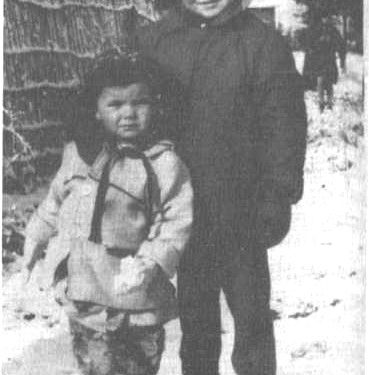
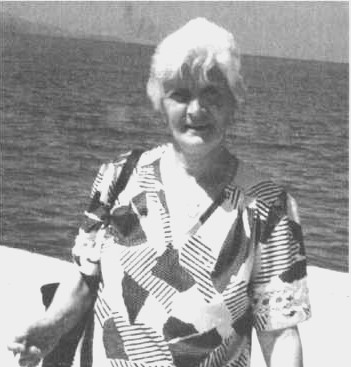
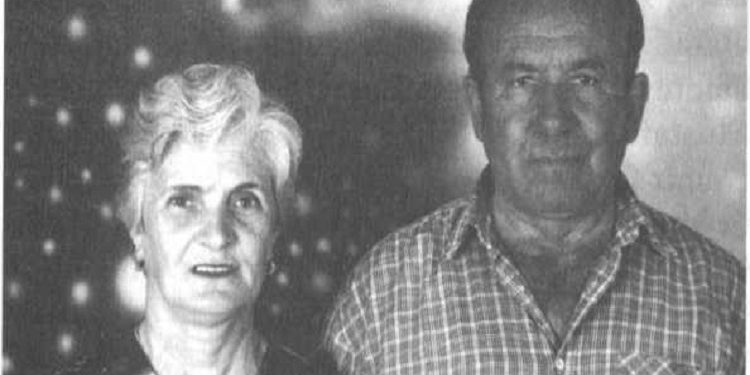
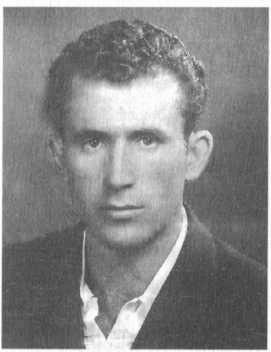
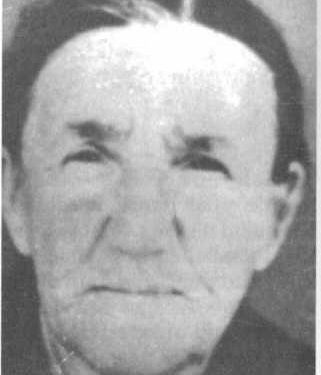
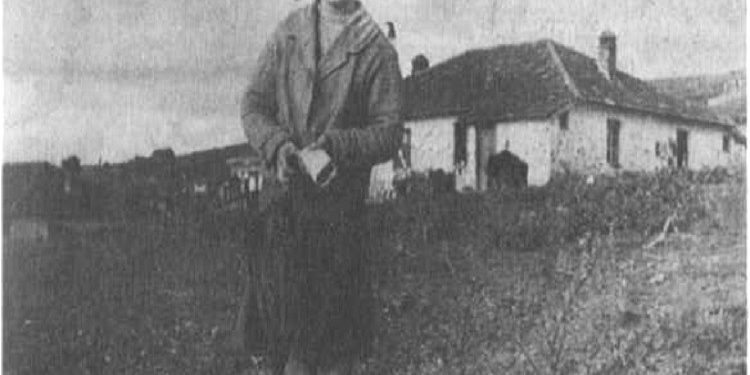



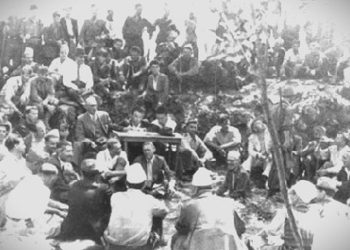
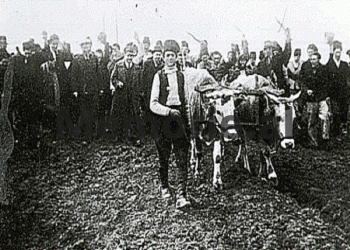
![“They have given her [the permission], but if possible, they should revoke it, as I believe it shouldn’t have been granted. I don’t know what she’s up to now…” / Enver Hoxha’s letter uncovered regarding a martyr’s mother seeking to visit Turkey.](https://memorie.al/wp-content/uploads/2026/01/Dok-1-350x250.jpg)
